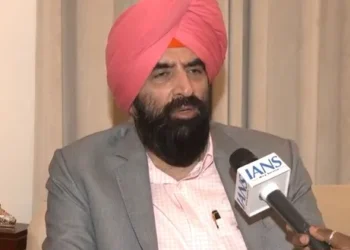The top court on Wednesday said that it would list other pleas on the issue for hearing after Holi vacation.
A fresh plea was filed in the Supreme Court on Thursday challenging the Karnataka High Court verdict which dismissed the petitions seeking permission to wear a Hijab inside the classroom saying Hijab is not a part of the essential religious practice in the Islamic faith.
The petition has been filed by Sajeeda Begum, who had also sought to get herself impleaded as a party in the proceedings related to Hijab ban before the Karnataka High Court.
The top court on Wednesday said that it would list other pleas on the issue for hearing after Holi vacation.
When senior lawyer Sanjay Hedge, appearing for a student, mentioned the plea for urgent listing on March 16, Chief Justice of India NV Ramana had said “Others also mentioned, let us see…we will list (the petitions) after the vacation. Give us time.” Begum, in her fresh appeal filed through lawyer Talha Abdul Rahman and others, said that the teenage girls covering themselves modestly while going to receive education pose no threat to “public order.” “In fact, the threat to law and order is manufactured by hecklers who are to be controlled by the State. The impugned government order would affect young girls’ minds forever,” the appeal said.
The plea said that the high court failed to apply the tests applicable to restrictions on the fundamental right to freedom of speech and expression and the fundamental right of privacy without reasons.
The high court treated dress code or uniform prescribed as not involving the issue of breach of the fundamental right, without appreciating that no such uniform has yet been prescribed that takes away the right to wear hijab.
Prior to this, several other pleas including a Muslim student, who was one of the petitioners before the high court, had moved the top court against the full bench high court verdict on the case in which it was held that wearing hijab is not a part of essential religious practice in Islamic faith under Article 25 of the Constitution.
The high court had dismissed the petitions filed by a section of Muslim students from the Government Pre-University Girls College in Udupi, seeking permission to wear Hijab inside the classroom.
The prescription of school uniform is only a reasonable restriction, constitutionally permissible which the students cannot object to, the high court had said.
In one of the pleas filed in the top court, the petitioner said the high court has “erred in creating a dichotomy of freedom of religion and freedom of conscience wherein the court has inferred that those who follow a religion cannot have the right to conscience.” “The high court has failed to note that the right to wear a Hijab comes under the ambit of the right to privacy under Article 21 of the Constitution of India. It is submitted that the freedom of conscience forms a part of the right to privacy,” it said.
The plea said the petitioner had approached the high court seeking redressal for the alleged violation of their fundamental rights against the state government order of February 5, 2022, issued under Sections 7 and 133 of the Karnataka Education Act, 1983.
The high court had maintained that the government has the power to issue impugned order dated February 5, 2022, and no case is made out for its invalidation.
By the said order, the Karnataka government had banned wearing clothes that disturb equality, integrity, and public order in schools and colleges, which the Muslim girls had challenged in the high court.
Challenging the February 5 order of the government, the petitioners had argued before the high court that wearing the Islamic headscarf was an innocent practice of faith and an Essential Religious Practice (ERP) and not a mere display of religious jingoism.
The petitioners had also contended that the restriction violated the freedom of expression under Article 19(1)(A) and Article 21 dealing with personal liberty























